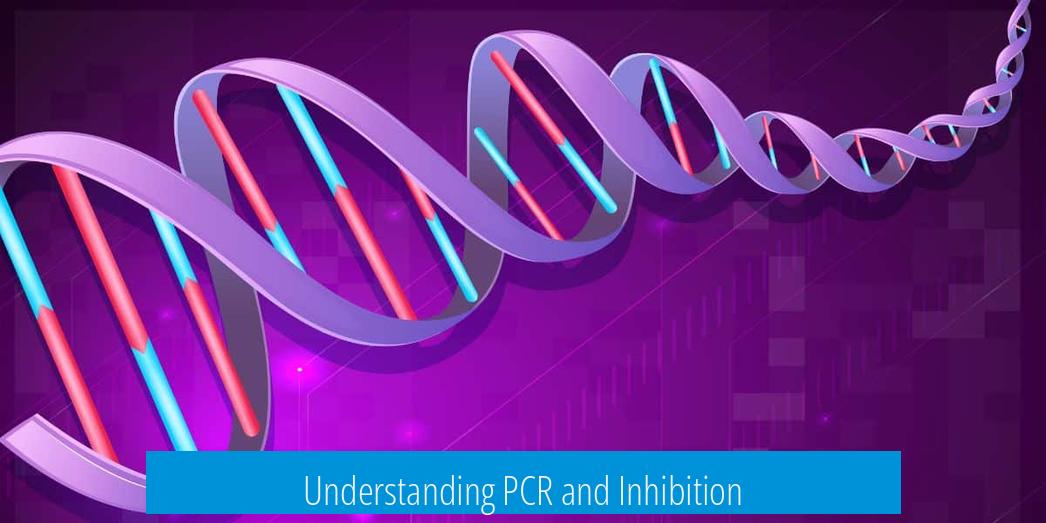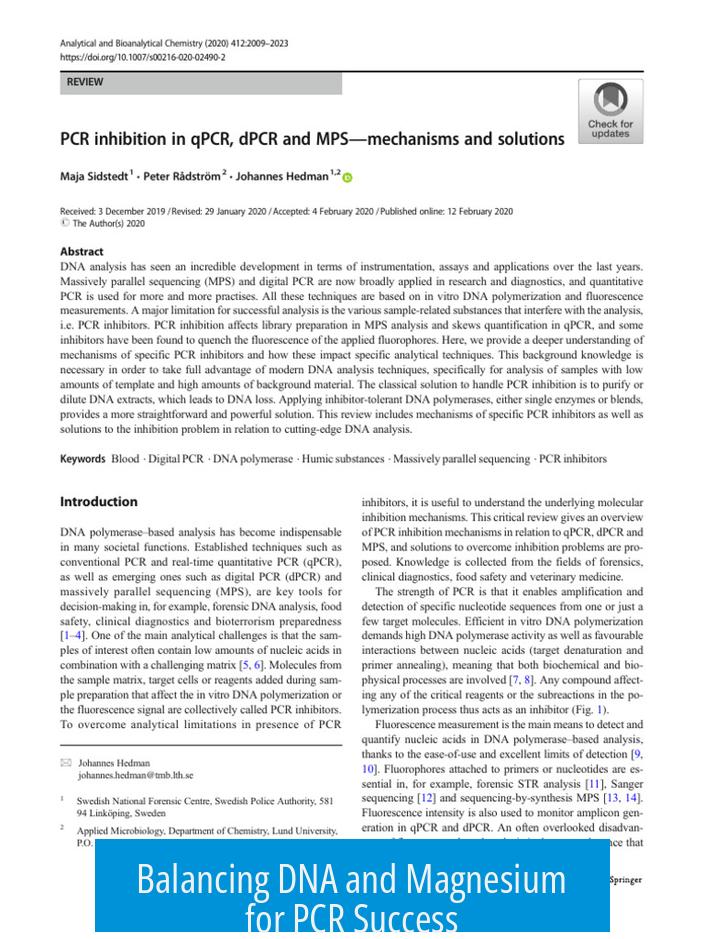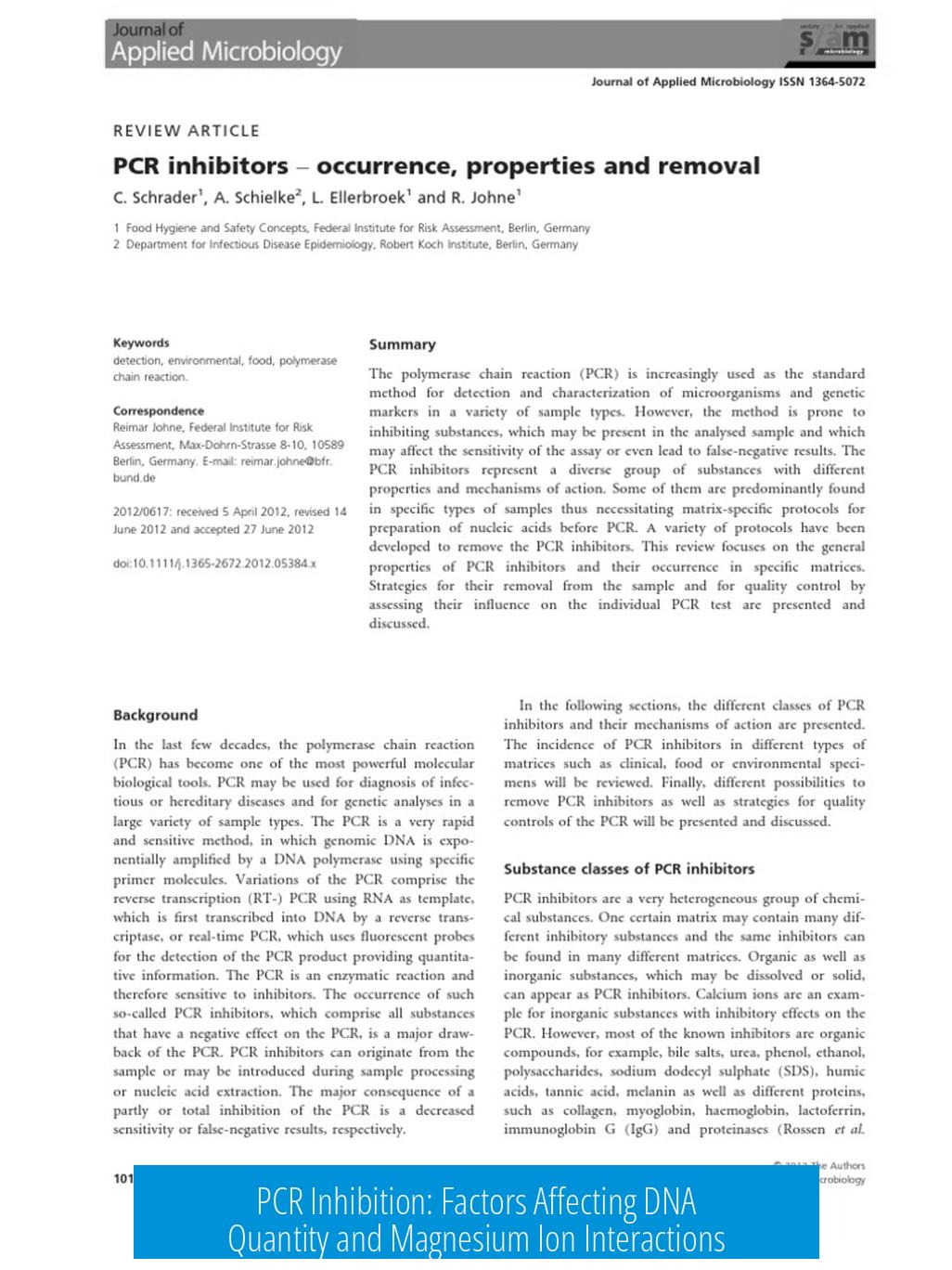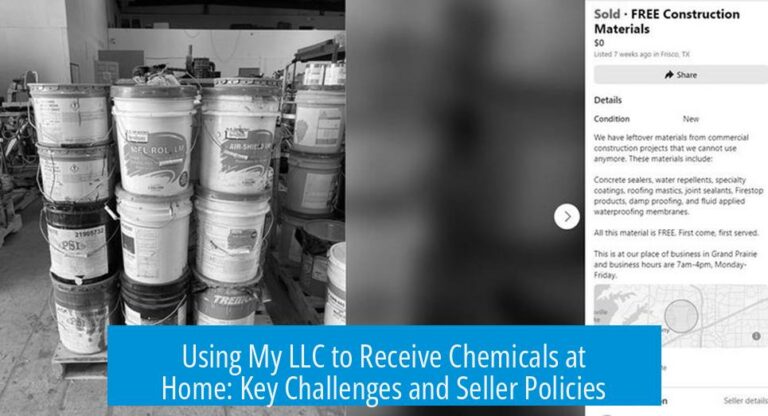Understanding PCR and Inhibition

Polymerase Chain Reaction (PCR) can be inhibited by multiple factors, with DNA quantity and magnesium ion availability playing key roles. Excess DNA may reduce PCR efficiency, and DNA can sequester essential magnesium ions needed for the polymerase enzyme. Managing these components is crucial to avoid inhibition.
Effect of DNA Quantity on PCR
DNA amounts up to 1 microgram (μg) often do not inhibit PCR directly. However, this tolerance depends on several factors:
- DNA quality and purity
- Type of Taq polymerase enzyme used
- Buffer composition and additives
Exceeding 1 μg may still be possible without issues, but it varies by experimental conditions. High DNA loads can reduce polymerase efficiency or cause nonspecific amplification.
Magnesium Ion Role and DNA Interaction
Magnesium ions (Mg2+) serve as essential cofactors for Taq polymerase. Their concentration typically ranges between 1 and 5 mM in PCR setups.
DNA molecules can bind or “capture” magnesium ions, effectively lowering free Mg2+ levels. This reduces enzyme activity and can lead to inhibition.
To illustrate, the molecular weight of a deoxynucleotide is about 300 Da. At 1 mM nucleotide concentration (inside DNA), this correlates roughly to 300 ng/μL DNA. High DNA concentration thus translates to substantial magnesium sequestration.
Balancing DNA and Magnesium for PCR Success

The key to avoiding PCR inhibition lies in optimizing the balance between DNA input and magnesium concentration:
- Maintain DNA amounts within a range that does not excessively bind magnesium.
- Adjust magnesium concentration based on DNA quantity and buffer conditions.
- Use appropriate buffer systems and additives that stabilize enzyme activity.
Careful optimization helps maintain sufficient free Mg2+ for polymerase function and reliable amplification.
Key Takeaways
- DNA up to 1 μg generally does not inhibit PCR; effects depend on experimental factors.
- Magnesium ions are critical as cofactors and are sequestered by DNA.
- Balancing DNA amount and Mg2+ concentration prevents PCR inhibition.
- Optimization of buffers and enzymes is essential for robust PCR results.
How does DNA quantity affect PCR inhibition?
DNA amounts up to 1 µg often work without issues. However, the effect depends on DNA quality, the type of Taq polymerase, and reaction components. Too much DNA can still cause inhibition by interacting with other factors.
Why is magnesium important in PCR, and how does DNA affect it?
Magnesium acts as a cofactor for Taq polymerase. DNA can bind magnesium ions, reducing their availability. This binding may lower the enzyme’s activity and cause PCR inhibition.
What is the typical magnesium concentration in a PCR mix?
Magnesium concentrations usually range from 1 to 5 mM. Maintaining this range is key to balancing enzyme activity and minimizing inhibition caused by DNA binding magnesium.
Can adjusting magnesium levels prevent PCR inhibition due to DNA?
Yes. Increasing magnesium concentration can compensate for the DNA binding that sequesters magnesium. However, excessive magnesium might cause nonspecific amplification, so optimization is necessary.
How can understanding DNA and magnesium balance improve PCR results?
Knowing how DNA captures magnesium helps set correct ion levels in the mix. This balance ensures enough cofactor for the enzyme to function, reducing the chances of PCR inhibition and improving amplification efficiency.





Leave a Comment